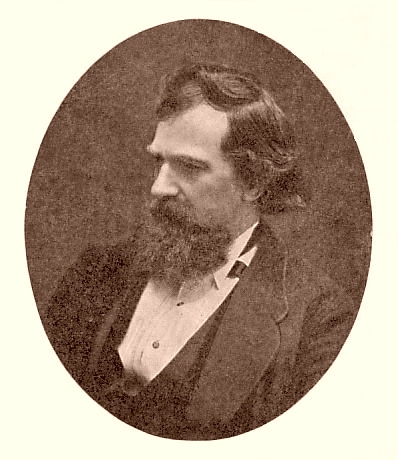|
 |
|
Joseph Skipsey
(1832-1903) |
The conditions that precede artistic production are so constantly treated
as qualities of the work of art itself that one sometimes is tempted to wish that all art were anonymous.
Yet there are certain forms of art so individual in their utterance, so purely personal in their expression,
that for a full appreciation of their style and manner some knowledge of
the artist's life is necessary. To this class belongs Mr. Skipsey's
Carols from the Coal-Fields, a volume of intense human interest and high
literary merit, and we are consequently glad to see that Dr. Spence Watson has added a short biography of his friend to his friend's poems,
for the life and the literature are too indissolubly wedded ever really to be separated. Joseph Skipsey, Dr. Watson tells us, was sent into the
coal pits at Percy Main, near North Shields, when he was seven years of age.
Young as he was he had to work from twelve to sixteen hours in the day, generally in the pitch dark, and in the dreary winter months he saw
the sun only upon Sundays. When he went to work he had learned the
alphabet and to put words of two letters together, but he was really his
own schoolmaster, and 'taught himself to write, for example, by copying the letters from printed bills or notices, when he could get a candle
end,--his paper being the trapdoor, which it was his duty to open and shut as the wagons passed through, and his pen a piece of chalk.'
The first book he really read was the Bible, and not content with reading it,
he learned by heart the chapters which specially pleased him. When
sixteen years old he was presented with a copy of Lindley Murray's Grammar, by the aid of which he gained some knowledge of the structural
rules of English. He had already become acquainted with Paradise Lost,
and was another proof of Matthew Prior's axiom, 'Who often reads will sometimes want to write,' for he had begun to write verse when only 'a
bonnie pit lad.' For more than forty years of his life he laboured in
'the coal-dark underground,' and is now the caretaker of a Board-school in Newcastle-upon-Tyne.
As for the qualities of his poetry, they are its directness and its natural grace.
He has an intellectual as well as a metrical affinity with Blake, and possesses something of Blake's
marvellous power of making simple things seem strange to us, and strange
things seem simple. How delightful, for instance, is this little poem:
|
'Get up!' the caller calls, 'Get up!'
And in the dead of night,
To win the bairns their bite and sup,
I rise a weary wight.
My flannel dudden donn'd, thrice o'er
My birds are kiss'd, and then
I with a whistle shut the door
I may not ope again. |
How exquisite and fanciful this stray lyric:
|
The wind comes from the west to-night;
So sweetly down the lane he bloweth
Upon my lips, with pure delight
From head to foot my body gloweth.
Where did the wind, the magic find
To charm me thus? say, heart that knoweth!
' Within a rose on which he blows
Before upon thy lips he bloweth!' |
We admit that Mr. Skipsey's work is extremely unequal, but when it is at
its best it is full of sweetness and strength; and though he has carefully studied the artistic capabilities of language, he never makes
his form formal by over-polishing. Beauty with him seems to be an unconscious result rather than a conscious aim; his style has all the
delicate charm of chance. We have already pointed out his affinity to
Blake, but with Burns also he may be said to have a spiritual kinship, and in the songs of the Northumbrian miner we meet with something of the
Ayrshire peasant's wild gaiety and mad humour. He gives himself up
freely to his impressions, and there is a fine, careless rapture in his laughter.
The whole book deserves to be read, and much of it deserves to be loved.
Mr. Skipsey can find music for every mood, whether he is dealing with the real experiences of the pitman or with the imaginative
experiences of the poet, and his verse has a rich vitality about it.
In these latter days of shallow rhymes it is pleasant to come across some
one to whom poetry is a passion not a profession. |
